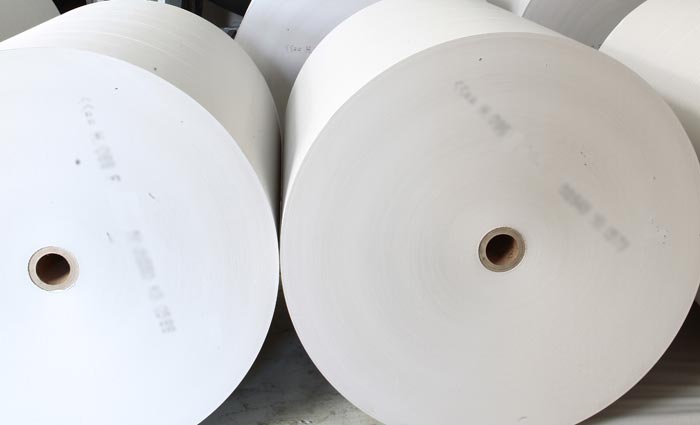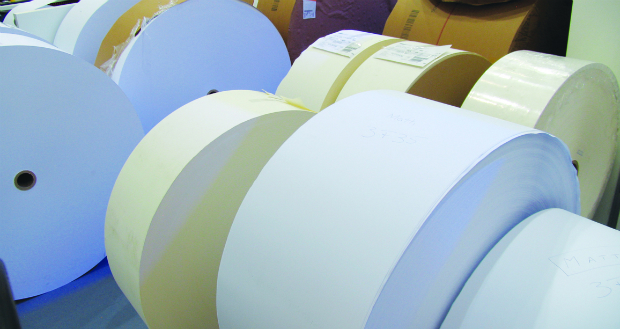
The UK business of troubled Australian-owned Paperlinx, which is Britain's biggest paper merchant, has been placed into administration, with potentially huge ramifications for the UK print industry.
Most of the rest of the Paperlinx business, including its Australian arm with its Spicers brand, is unaffected, as the UK runs as a separate stand-alone business.
Chief executive Andy Preece says the profitable Spicers businesses in Australia, New Zealand and Asia are insulated from the financial liabilities of the UK businesses and will continue to trade as normal.
A cloud hangs over the Benelux (Belgium, Holland, Luxembourg) business which has until April 15 to find a buyer, otherwise its financing will be withdrawn.
Deloitte was appointed at 4pm UK time yesterday (2am this morning AEST) and immediately shut down most of the UK operation.
Of the company’s 19 UK sites, 14 were closed straight away, with five being kept on in the hope of realising the value of the stock and other assets. Some 693 of the Paperlinx 1200 staff were told to go immediately.
[Related: The ups and downs of Paperlinx]
The news sent UK printers scrambling for paper, and is leading to major concerns about supply for the British print industry, with industry voices querying whether the other merchants would be able to cope with demand, as Paperlinx was the major merchant.
Previously, a senior source at one rival major merchant had told ProPrint’s UIK sister magazine PrintWeek: "If it [Paperlinx] went, I can't imagine what would happen. The disruption would be incredible… even though Paperlinx is smaller than it was, the volumes are still huge. The other merchants won't be able to cope with it. It's an extremely unusual set of circumstances."
Deloitte is looking for a buyer for all or part of the business and its assets, including the packaging operations that are not in administration.
Administrator Matt Smith says the administration appointment specifically relates to Paperlinx UK’s paper and visual technology solutions businesses.
“The industry has faced an increasingly challenging environment due to falling demand as digital communications have increased. We are investigating how best to maximise value in the businesses for the benefit its creditors,” he says.
Trading in the shares of Paperlinx UK’s publicly-quoted Australian owner are currently suspended due to a cash crisis in its European operation, because of a possible breach of banking covenants with one of its financiers in Europe, they are in a halt until April 8.
Paperlinx shares are on the floor, when trading was halted they were listed at 0.017c, 98 per cent less than the value ten years ago.
Paperlinx Ireland, which trades in Northern Ireland and the Republic, and operations in mainland Europe, Asia and Australasia are unaffected.
The company last month sold off its Canadian business for $65m, which analysts say was well below value.
[Related: More paper news]
Paperlinx last month also sacked its chief executive and self-proclaimed savior Andrew Price, and replaced him with the head of Spicers ANZ Andy Preece.
The company lost $90m during the first half of this financial year, with European trading blamed for most of the losses.
Spicers though once again kept its head above water in the Asia Pacific, with a six per cent sales drop to $209m offset by margin and cost control in Australia and New Zealand.
Underlying EBIT eased only one per cent to $9.1m and while pre-tax profit was down 85 per cent to $1.35m, this was mostly a result of $7.77m worth of significant items, up from only $412,000 last year including $1m restructuring costs and a $6.3m goodwill writedown.
Preece says Paperlinx's primary focus in Australia, New Zealand Asia will be to ‘continue to develop its businesses beyond paper merchanting and into sign and display and packaging’.
Paperlinx is Australia’s biggest merchant, although in fine papers BJ Ball and KW Doggett supply as much if not more.
Comment below to have your say on this story.
If you have a news story or tip-off, get in touch at editorial@sprinter.com.au.
Sign up to the Sprinter newsletter



